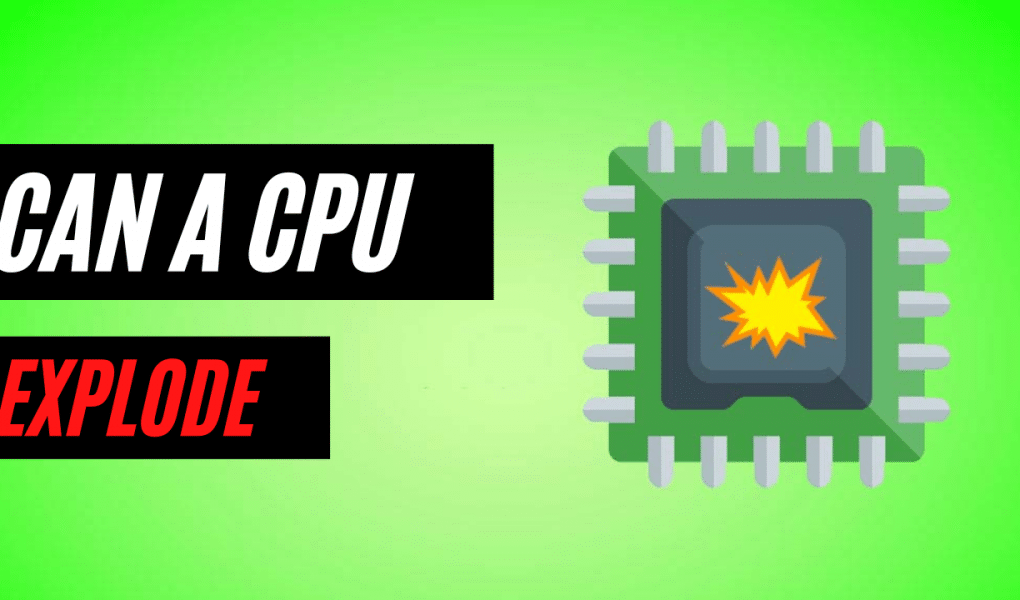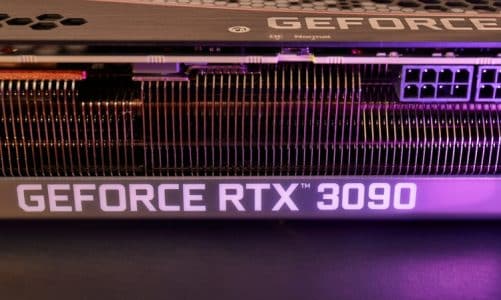CPUs are becoming powerful with the passage of time. If your CPU is clocked at a higher clock speed and has multiple cores, it will produce more heat. Also, overclocking your CPU can also result in higher temperatures. But can a CPU explode after it hits a certain level of temperature? Well, here’s the answer to this question.
No, a CPU cannot explode if it hits a higher temperature. However, higher temps on a CPU can result in system crashes like BSOD screen or frequent restarts. A CPU that is overclocked to extreme speed can cease to function or trigger thermal throttling almost. Regardless of what you do, your CPU won’t explode even if you pass higher voltage through it for the purpose of overclocking.
High CPU Voltage and heat may cause degradation of CPU silicon as time passes. Also, unstable voltage and heat could end up melting your CPU in some cases if you don’t have a reliable cooling solution.
Keep in mind that a poorly designed motherboard can explode if it comes with low-quality capacitors or VRMs. But there’s no need to worry about your CPU blowing up.
Contents
Why a CPU cannot explode as compared to other components on a motherboard?
It’s because the silicon shield encircling the CPU will oppose any “explosion event” even if the temperature exceeds the safe limit. There’s no sound generated when a CPU dies, the only thing that you’ll notice is a melted CPU or burning smell coming out of the CPU socket.
There’s a mechanism in every laptop or desktop computer that shuts down or restarts your system once the temperature exceeds the safe limit.
Can a CPU in a laptop explode?
No, there isn’t anything in a CPU that can result in an explosion. However, the battery in a laptop has more chances of explosion if you overcharge it for longer periods. But this was the case with 20 years old laptops that do not have a mechanism to automatically turn off the charging port once your battery was fully charged.
Which processes in the computer can burn the CPU?
Modern CPUs are thermally protected and cannot burn even if you push them to a higher clock speed. Yes, a CPU can become unstable and restart your computer if it gets too hot or you have a CPU cooler that is unable to dissipate the recommended amount of heat to cool your CPU.
To test the maximum temperature limit of a CPU, you can use a benchmark program like Prime95. This is an intensive CPU benchmarking program that can push your CPU temps to 100 Degrees Celsius. Even at this temperature, your CPU won’t burn at all. However, it could happen that your system would freeze or restart.
Factors that can damage your CPU
Here are the factors that can negatively impact your processor:
Age of your CPU
For example, if you have a 15-year-old CPU in your computer, then it’s more likely that the thermal protection on your CPU is degraded. If that’s the case, your CPU may not survive longer and die.
Excess Heat
Heat is the most influential factor known for reducing the life span of computer hardware. Using a low-quality CPU cooler with a high-end processor might damage it. A normal temperature range of a CPU is around 120 Degrees Fahrenheit in an idle state.
If your CPU is producing more heat and shows higher than normal temperature, then you have to replace your current cooler with a better one.
Moreover, the thermal paste on your CPU may dry or get ineffective over time. This potentially can result in more heat produced by your CPU. Therefore, it is advisable to reapply new thermal paste on your CPU once in a year.
Overclocking your CPU
Overclocking the CPU to its limits can result in more heat, which may reduce the lift of your CPU. Pushing your CPU above its capable limits causes more damage to it than benefits. Also, don’t forget to use a high-end liquid cooler if you plan to overclock your CPU.
It’s better to shop for a higher clock speed CPU rather than squeezing more juice out of it through overclocking.
CONCLUSION
So, there’s nothing to worry about your CPU getting exploded if you overclock it. However, keep in mind that pushing your CPU to its limit might reduce its overall life. Hope you got the answer to your question.

Hi, my name is Masab, a die-hard PC enthusiast and founder of this blog. I love to share my prior experience with computers on this blog. Ask me anything about building a PC or troubleshooting PC errors, I’m here to help.




